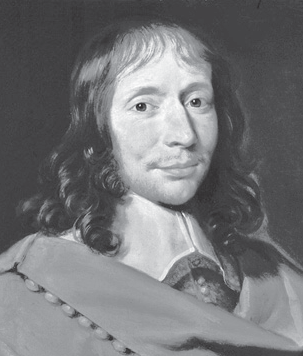It’s impossible to know with certainty whether God exists. Therefore, one might as well play it safe by believing in him, since in the event that God does exist, it’s better to be on his good side than to suffer eternal damnation.

That logic, in a nutshell, forms the famous philosophical argument known as Pascal’s wager, named for the French scientist and mathematician Blaise Pascal (1623–1662). Published as part of a philosophical treatise released after Pascal’s death, the wager remains one of the most pragmatic—or, to critics, disingenuous—arguments in favor of religious belief.
Indeed, Pascal has a role in the history of philosophy as one of the last mainstream Western philosophers to offer a full-throated defense of traditional Christian religious belief, even as Enlightenment-era contemporaries such as Baruch Spinoza (1632–1677) increasingly abandoned the Judeo-Christian concept of God in their philosophies.
Pascal was born in Montferrand, France, and educated at home by his mathematician father. A sickly child, he suffered from health problems his whole life and was unable to eat solid food after age twenty-four.
In his short lifetime, however, Pascal made enormous contributions to science. At age nineteen, he invented a device known as Pascal’s calculator, or the Pascaline, that added and subtracted numbers. He was also a pioneer in hydrodynamics and helped prove the existence of vacuums in a famous 1648 experiment. In math, he helped invent the study of probability.
Pascal abruptly abandoned science and math, however, after having a dream in 1654 that he interpreted as a religious awakening. He became convinced that his scientific pursuits had been a waste of time, and he broke off contact with many of his friends. Pascal spent most of the remainder of his life writing a defense of the Roman Catholic faith that was published after his death as Pensées. He died in Paris at age thirty-nine.
ADDITIONAL FACTS
- Pascal’s calculator, which he originally invented to help his father, who was a tax collector, used an elaborate system of mechanical gears to add and subtract numbers. The device was so time-consuming—and expensive—to produce that only about fifty were made in his lifetime.
- A computer programming language—Pascal—was named after the mathematician in 1970. In physics, a pascal is a unit of pressure—also named in his honor.
- When he was only sixteen years old, Pascal wrote a paper on conic sections that was sent to the famous French philosopher and mathematician René Descartes (1596–1650).
